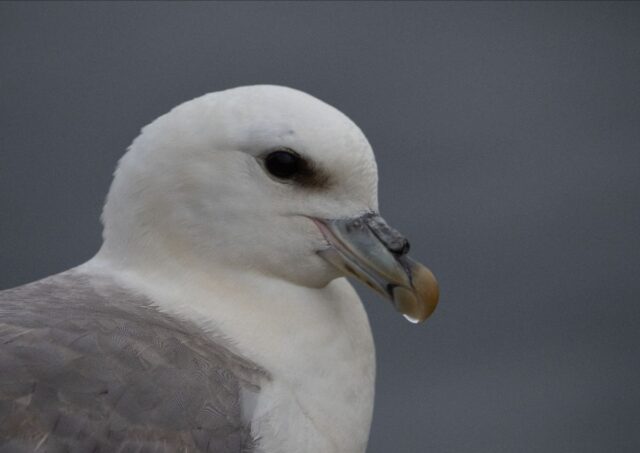At 45 years old, a Fulmar recorded on an uninhabited Scottish island is one of the oldest of its kind ever recorded.
The bird’s extraordinary age is a reminder that many seabirds live for a very long time – a trait that can make their populations particularly vulnerable to the impacts of Avian Influenza (AI).
The record is one of many that have just been published in the latest British Trust for Ornithology (BTO) ringing report.
Researchers from the British Trust for Ornithology (BTO) were able to work out the Fulmar’s grand old age thanks to a numbered ring that was fitted to its leg by a volunteer bird ringer back in 1975, when the bird was still a fledgling on Eynhallow, Orkney. It was spotted again last year, when the ring number revealed that the bird had reached 45 years, 9 months and 12 days old. Other 1975 births include Microsoft, Jaws and Queen’s Bohemian Rhapsody.
Fulmars are one of many seabird species that have been hit hard by the unfolding AI outbreak that devastated colonies across Britain and Ireland this summer. Seabirds tend to be long-lived and slow to reproduce – a Fulmar, for instance, might be as old as 12 before it lays its first egg. Even then, early breeding attempts are less likely to be successful. This means it can take a very long time for populations to recover from disease, and that older, more experienced adults play an outsize role in maintaining them. Only time will tell if this particular individual managed to weather the AI storm.
Ringing birds lets us work out how old they are, which in turn means we can calculate the rates of individual birds’ survival from one year to the next. It also reveals the places birds move between, their levels of breeding success, and important information about their physical condition. These data are vital if we want to understand the impact of threats like AI and the best ways to target conservation work.
Sightings of ringed birds can be submitted to www.ring.ac
Dr Dave Leech, head of the British and Irish Ringing Scheme, says: ‘Britain and Ireland’s seabird populations are of global importance – volunteer bird ringers participating in the BTO Ringing Scheme play a fundamental role in the monitoring work that underpins conservation efforts. With Avian Influenza now adding to the significant, existing environmental pressures posed by changes in climate and habitat quality, the dedication of these highly skilled volunteers is more important than it ever has been and we are immensely grateful for their incredible contribution.’




